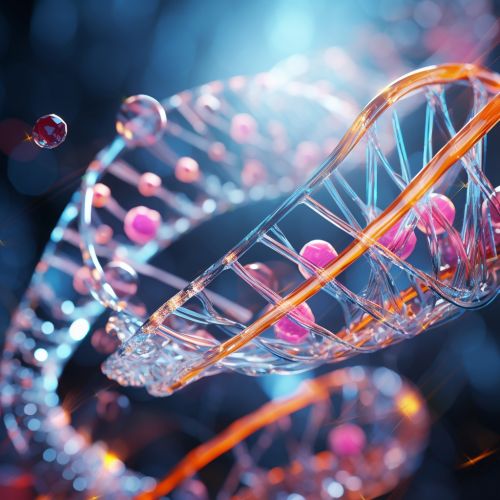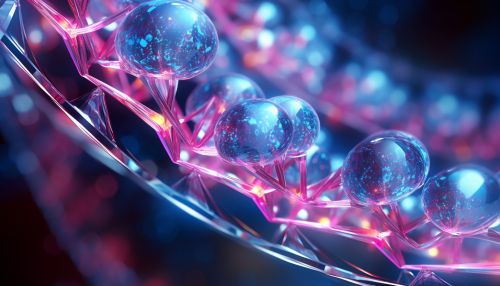Random mutagenesis
Introduction
Random mutagenesis is a process that introduces genetic changes in an organism's DNA sequence randomly. This process is a fundamental aspect of Molecular biology, Genetics, and Biotechnology, as it provides a means to generate genetic diversity, which can be harnessed for various applications.


Mechanism of Random Mutagenesis
Random mutagenesis can occur naturally or be induced artificially. The natural process is a result of errors during DNA replication or the repair of damaged DNA. On the other hand, artificial random mutagenesis is achieved through exposure to physical or chemical mutagens.
Natural Random Mutagenesis
During DNA replication, the DNA polymerase enzyme copies the DNA sequence. However, this process is not entirely accurate, and errors can occur, leading to mutations. These errors are random and can occur at any point in the DNA sequence.
Artificial Random Mutagenesis
Artificial random mutagenesis involves the deliberate introduction of mutations into an organism's DNA. This can be achieved through exposure to physical mutagens such as radiation, or chemical mutagens like ethyl methanesulfonate (EMS) or nitrosoguanidine (NTG).
Applications of Random Mutagenesis
Random mutagenesis has a wide range of applications in various fields of science and technology.
Molecular Biology and Genetics
In molecular biology and genetics, random mutagenesis is used to study the function of genes. By introducing random mutations into a gene and observing the resulting phenotype, scientists can infer the gene's function.
Biotechnology
In biotechnology, random mutagenesis is used to generate genetic diversity in microorganisms, plants, and animals. This diversity can be harnessed to develop new strains or breeds with desirable traits.
Medicine
In medicine, random mutagenesis is used in the development of new drugs and therapies. For instance, it is used in the generation of antibody libraries for the development of monoclonal antibodies.
Advantages and Disadvantages of Random Mutagenesis
Like any scientific technique, random mutagenesis has its advantages and disadvantages.
Advantages
One of the main advantages of random mutagenesis is its ability to generate a large amount of genetic diversity. This diversity can be harnessed for various applications, from the development of new drugs to the breeding of new plant varieties.
Disadvantages
One of the main disadvantages of random mutagenesis is the lack of control over the location and nature of the mutations. This can lead to unwanted changes in the organism's phenotype.
Conclusion
Random mutagenesis is a powerful tool in the fields of molecular biology, genetics, biotechnology, and medicine. Despite its limitations, it continues to be a vital technique for generating genetic diversity and studying gene function.
